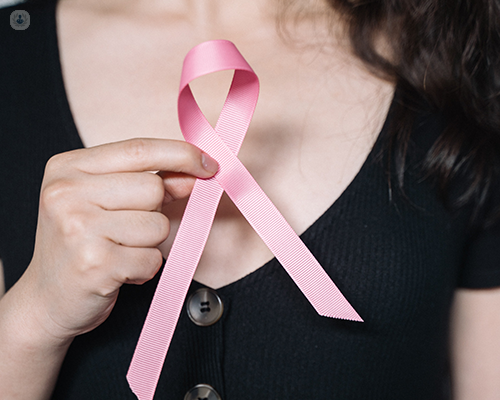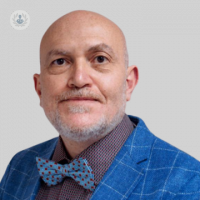Tiny breast lumps: Spotted with a handheld scanner
Autore:Breast cancer can be treated with success in several ways, but despite survival rates increasing every year, prevention and early detection remain key for recovery.
Now, early diagnosis of breast cancer could be helped with a new high-tech, handheld scanner which detects small lumps under the skin in five to 10 minutes, and picks up those that are missed in a manual examination, painlessly examining the breast tissue. Its size and shape, similar to a small handheld scan, offers an alternative to the manual breast checks carried out by primary care health practitioners.
Here to provide a detailed opinion into this new development in breast cancer diagnosis, is leading consultant oncoplastic, reconstructive and aesthetic breast surgeon, Mr Mohsen El Gammal.

What is the diagnosis of breast cancer in the UK?
Breast cancer diagnosis affects around 55,000 women in the UK each year. Of the patients who survive for at least five years, almost all (98 per cent) are diagnosed at the earliest stage of the disease. The figure is 25 per cent for those whose cancer isn’t detected until the latest stage.
Around 87 per cent of tumours are identified when women participate, every three years, in the national screening programme that is offered to all women aged 50 to 71. If referred by a GP, women can also undergo mammograms.
But, according to data, almost half of women don’t turn up for their appointment.
The process might be found to be uncomfortable. Although the exposure from one scan is very small, some women also have concerns about the radiation involved. However, research has shown that it is equivalent to seven weeks of background radiation from objects in our everyday surroundings, such as microwaves.
How does the scanner work?
Hundreds of tiny, vibrating, ceramic plates are on the underside of this new, battery-operated scanner. As the device is gently pressed down on the breast and moved across it, these measure the elasticity of the tissue. A lump is indicated by less elastic or stiffer areas.
A ‘map’ of the breast tissue is then produced by a computer, where results are wirelessly sent. In the US, 500 women in a 2020 study, found the handheld scanner to be as good as manual breast examinations at detecting lumps.
According to research, in triaging - when it is decided which women should be sent for mammograms - the iBreastExam was also found to be helpful. The US medical regulator has approved the device, and to help untrained health staff, it is already being used in India, Egypt and Mexico.
When could the scanner be especially useful?
To help determine which patients need further investigation, the new device could be especially useful in GP surgeries. Many patients don’t have a lump but are still worried anyways, and primary care staff might not be experienced enough to tell this difference. Mammograms or years of experienced, specialist opinion cannot be replaced, however.
Apart from this scanner, what are the newest developments in breast cancer diagnosis?
Researchers from the University of Dartmouth, who developed the software, have suggested that by analysing high-tech breast scans, a computer algorithm can determine whether breast lumps are cancerous.
In it, two types of images, MRI scans and a type of scan technology that uses infrared light to provide detailed images about breast tissue, called near-infrared spectral tomography, which has only been used in trials, are combined and analysed.
According to journals, the combined scans are read and a judgment is made on whether there is cancer present by Z-net - the name of the new software - in only seconds.
The accuracy of the software will soon be tested in clinical trials.
Mr Mohsen El Gammal is a highly qualified breast surgeon based in London and Kent, who specialises in breast surgery, breast cancer and benign breast diseases. If you're looking for expert diagnosis of breast cancer, or simply want to know more about the latest developments, visit Mr El Gammal's Top Doctors profile today.


